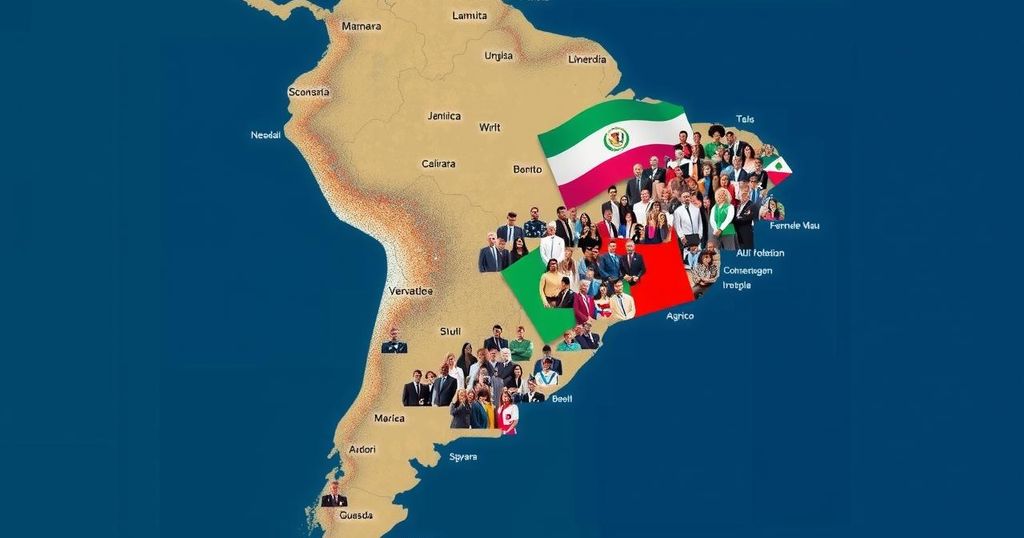Uruguay’s Presidential Elections: A Shift Towards Progressivism Amidst Regional Challenges

Uruguay’s presidential elections resulted in Yamandú Orsi of the Broad Front defeating Álvaro Delgado, reflecting a successful strategy in reconnecting with rural voters. This victory may serve as a blueprint for progressive coalitions facing right-wing populism. In Chile, President Gabriel Boric is embroiled in a scandal that could affect his administration’s stability and public support. The situation in Brazil’s football also emphasizes regional pride in cultural achievements amidst political turbulence.
The recent elections in Uruguay have resulted in a significant political shift, with the progressive Broad Front reclaiming the presidency through Yamandú Orsi, who defeated conservative candidate Álvaro Delgado by a margin of 52 percent to 48 percent in a runoff election. Notably, Mr. Orsi’s victory is remarkable considering outgoing President Luis Lacalle Pou, representing the center-right, held one of the highest approval ratings in the region, above 50 percent. Gains made in rural areas were pivotal for the Broad Front, reversing trends from previous elections that saw them losing support in these regions.
The implications of Uruguay’s election results may extend beyond its borders, offering a potential roadmap for other progressive coalitions striving to counter the rising tide of right-wing politics. Mr. Orsi’s strategy emphasized reconnecting with rural voters, a constituency that had decisively turned against the Broad Front in the last presidential elections. His success indicates that political coalitions can effectively adapt and realign to regain power, particularly in an increasingly fragmented political landscape.
Furthermore, the situation in Chile regarding President Gabriel Boric is creating turbulence, with recent allegations of sexual misconduct surfacing against him. This unfolding scandal could significantly impact public perception and the political climate within the nation. Additionally, Brazil’s dominance in South American football remains a critical aspect of regional culture and pride, showcasing the interconnectedness of politics and national identity in the continent.
The political landscape in Latin America is marked by challenges and opportunities, particularly as citizens navigate the complexities of governance amidst economic pressures and social movements. Recently, Mexico is facing potential economic ramifications due to trade policies imposed by the United States, specifically the threat of increased import tariffs from the Trump administration. Uruguay’s recent elections illustrate a broader trend of grassroots political mobilization in the region, particularly among leftist coalitions that have had to adapt to challenges posed by rising right-wing movements. In Chile, President Gabriel Boric’s administration is under scrutiny due to allegations that could undermine his credibility. Together, these narratives reflect the dynamic and often tumultuous nature of Latin America’s political climate.
In conclusion, the election of Yamandú Orsi and the Broad Front in Uruguay signifies a remarkable comeback for progressive politics, particularly through strategic engagement with rural voters. Meanwhile, ongoing issues in Chile highlight the vulnerabilities political leaders face, even amidst prior popular support. As South America navigates these political challenges, the continent’s electoral outcomes will likely shape the future landscape, providing both cautionary tales and inspirational models for emerging political coalitions.
Original Source: brazilian.report







